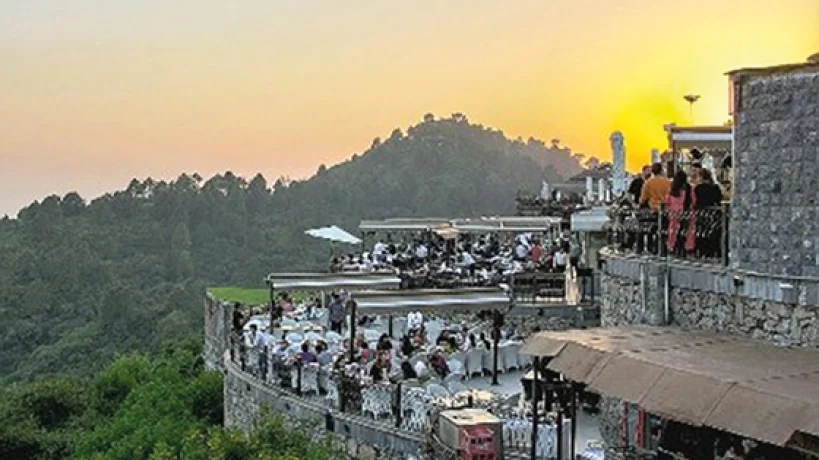The lively sounds of famous restaurants like Monal, La Montana, and Gloria Jean’s are no longer heard in the cool Margalla Hills of Islamabad. After a recent Supreme Court decision, these hilltop restaurants will no longer be open. They were famous for their beautiful views and lively events like business Iftar parties and retirement parties. The restaurants have been told to shut down, and the area has been given to the Islamabad Wildlife Management Board (IWMB). This marks a big change from a place where people could enjoy good food to a place where people could fight for wildlife protection.
Environmentalists and conservationists are happy about this choice, but many people who loved the Margalla Hills as a place to celebrate and feel better are sad about it. The places that used to be busy, where the city lights sparkled below and the mountains watched over, are now quiet. For many visitors, these hills were more than just a background; they were an important part of life’s most important times.
A private bank employee named Faisal talked about the things he had done in the past: “I’ve planned a lot of Iftar parties and private events here.” There was something truly special about celebrating outside, with the city lights and the beautiful mountains all around. There was more to these hills than just a setting. They were where we celebrated big events like birthdays, promotions, and anniversaries. The atmosphere, food, and music made for unforgettable moments.
Kazim Abbas, a government worker who often held retirement parties at these places, shared his feelings: “Monal and La Montana were the places we always went for our farewell parties.” A beloved custom grew out of having one last party in the peaceful beauty of these hills. Even though it breaks my heart to see these places go, I understand why the earth needs to be protected. It is important to protect nature, even if it means leaving places you love.
“Working at these restaurants was more than a job; it was my passion,” Aman, who used to work at La Montana, said about his loss. Families came back year after year to celebrate the important events in their lives. It’s hard for me personally and professionally to lose these places. I agree that protection is important, but it has a big effect on our lives and ways of making a living.
Safwan Shahab Ahmed, Vice Chairman of the Pakistan Wildlife Foundation and a major supporter of the lawsuit praised the Supreme Court’s ruling, saying, “This is a huge victory for the environment.” The Margalla Hills are an important part of Islamabad’s natural history. They are home to many kinds of plants and animals that are in danger from unchecked development. The choice to give management to the IWMB is good for protecting the environment. It’s important to defend the hills, and this is a big step forward for conservation in Pakistan.
But the win is tempered by worries that won’t go away. A social worker said that plans for projects like Margalla Avenue, which could cut through protected areas, could hurt efforts to protect the environment. “We should be happy about this win, but we also need to be aware of other projects that could change the landscape.” We need a more all-around approach to growth that strikes a balance between progress and preservation.
The IWMB wants to fix up the high area by taking down the old restaurant buildings and making the area more natural. As part of the plan to restore the area, benches, native plants, educational displays, and a water collection system will be put in place to help the environment. The IWMB has also promised strict rules and regular checks to protect the area’s natural beauty.
Fouzia Kulsoom Rana, a senior writer who specializes in environmental journalism, thought about the change: “The Margalla Hills are set to reclaim their natural splendour, symbolizing the balance between progress and preservation.” People will always remember the lively restaurants, but their closing marks the start of a new age of conservation. People will remember these hills not only for how beautiful they are but also for the important lesson they teach: we must always put saving our irreplaceable natural heritage first.

